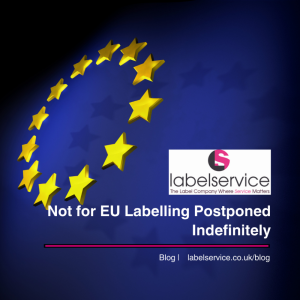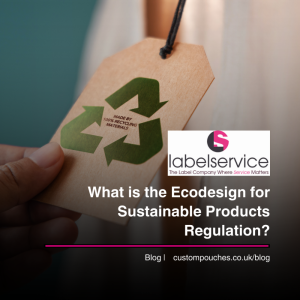We are living in a rapidly evolving world. Societal vulnerability in the face of climate and environmental change is serious and undeniable. The UK government has committed to an ambitious target of 2050 for net zero carbon emissions. The societal, economic and technological consequences of this challenge cannot be overstated, and it is universities like Imperial College London that can step up to provide the solutions, collaborations and skills necessary to help us get there.
Science and technology, and their translation to business, the public and decision makers, are critical to achieving net zero carbon and building a resilient and equitable society. The development and deployment of technical solutions to respond to changes in the natural world is based on our ability to continually monitor the environment. Rolling out new approaches in every sector demands smart application of science and clear assessments of impact. We also must equip the next generation with the skills and knowledge needed to make informed decisions that will drive the necessary action.
Imperial College has launched a new Sustainable Food and Drink Policy, outlining a set of ambitious targets to reduce the impact its catering and retail outlets have on the environment. The policy, led by the College’s in-house catering team, Taste Imperial, is an outcome document of the Sustainability Strategy 2022-26, and will apply to all outlets, restaurants, bars and stores on-campus. It includes commitments to:
Phase out beef products from College menus by 30% per year, ultimately removing them entirely by 2025-26.
- Make all non-dairy milks no extra charge within 2022-23.
- Only serve fish that is Marine Stewardship Council (MSC) Certified.
- Prioritise local, seasonal produce across-the-board.
- Introduce a revised reusable cup scheme to reduce single-use cups across campus.
- Increase the educational materials available in outlets on sustainable food and drink choices.
- Develop community spaces to support student and staff involvement in sustainable food projects.
Developed in consultation with students and staff, the Policy encompasses all aspects of sustainable food, including procurement, preparation, provision, food waste management, and education.
Food and sustainability
In the UK alone, domestic food production accounts for approximately 20% of our greenhouse gas emissions. Beef production, in particular, is a major contributor to climate change, in which it is estimated that global beef production releases the most greenhouse gas emissions, which include methane.
The Policy outlines 24 targets that the College aims to accomplish within the next four years, to contribute to the progress that the department has already embedded. The new Policy sets a clear pathway to embed and achieve these key targets. It encompasses a ‘whole of college’ approach, meaning that the policy will apply to all Catering outlets across the College, including in-house Taste Imperial outlets, events and hospitality services, outlets operated by Imperial College Union, as well as third-party outlets. The College will therefore work in partnership with internal and external contractors and suppliers to minimise negative environmental, ethical, and social impact.
The Head of Catering and Events, Kamil Khoury said: “The College is a global leader in research on climate change and sustainability, so it’s important that we walk the walk ourselves. The food and drink sector will play a huge role in reaching the UK’s Net Zero targets, and I’m incredibly happy that we will be on the forefront here at the College. Our ultimate goal is to develop and apply an ethical and sustainable procurement system to ensure that the College’s social and environmental impacts are appropriately considered. While this Policy sets out ambitious objectives and targets for the next four years, I am proud to say that we are already beginning to make strides to accomplish them. We look forward to continuing to work with the Imperial community to bring about transformative change.”
Tony Shepherd, Executive Chef and Head of Food Production, noted that the Policy has the potential to be controversial. “The goal is never to remove choice for our customers. It’s a difficult balance; we want to educate and inform so that we can all make more sustainable choices. But then there are things – beef is an example – where we’re limited by what our supply chain can do. We can’t realistically provide a more ‘sustainable route’ for beef products ourselves, so we must make the call that it will be replaced with options that are more sustainable.”
Tony and his team have worked hard across the last year to develop menu options that will prioritise foods that have a smaller environmental impact, including beans, pulses, organic fruits and vegetables and more. The College has committed to examine the Policy at least once a year to assess targets, and ensures to provide the Imperial community with the knowledge needed to promote sustainable development and to take action.
Resource Management
Imperial College explains that “responsible management of resources is integral to Imperial’s aims of achieving a sustainable, healthy, resilient and smart society. Our campuses should also reflect this vision for society, providing a clean and healthy environment in which the wellbeing of our staff and students is a priority.
We are committing to generating science-based targets and improvements in all areas, from energy use, water management, waste reduction and catering, to active travel, sustainable procurement and biodiversity.
With these commitments built into the College’s wider mission, all our staff and students will not only be aware of the changes they can make as individuals, but also be enabled to make these changes as part of the College community to create a sustainable future. Underpinning these commitments is our aim to create a shared vision for sustainability. We will achieve this not only through governance and management, building capacity, and demonstrating leadership by example, but also by empowering and inspiring our community and facilitating change within all levels of the College”.
The college will work with their suppliers to ensure that food and drink are sourced responsibly, food miles are minimised and the effects on the wider environment are taken into account, and to increase consumer awareness of the environmental impact of food and drink.
Plantworks
Launched in April 2019 on the South Kensington Campus, Plantworks is Imperial’s first entirely plant-based and vegan catering outlet. Plantworks features a bespoke and fresh menu of plant-based foods and drinks, encouraging staff and students to choose a healthier option at lunchtime and make their diet more sustainable for the planet.
Drink, Refill, Repeat
The Drink, Refill, Repeat campaign, a collaboration between Campus Services and Greening Imperial, encourages students and staff to transition from disposable drinks bottles and toward reusable containers. To support this, they have introduced new water fountains across its campuses and removed plastic cups from water stations, saving approximately 850,000 plastic cups per year.
Tackling Global Challenges
Imperial’s pioneering research in sustainability is helping to shape a cleaner future for all. Through their highly-collaborative and multidisciplinary approaches, the College contributes significantly to the science, policy and innovation guiding the transition to a more sustainable society. From fundamental discoveries about our planet’s climate system, to development of low-carbon technologies, the ground-breaking research undertaken in their faculties, centres, networks and Global Challenge Institutes will allow them to develop new insights and knowledge to help make sustainable change. The Grantham Institute for Climate Change and the Environment sits at the heart of their work on climate change and the environment and is one of six Global Institutes established to promote interdisciplinary working and to meet some of the greatest challenges faced by society.
The Energy Futures Lab is another of their institutes which aims to tackle major sustainability challenges by promoting energy innovation and advancing systemic solutions for a sustainable energy future. The Environmental Research Group, part of the School o Public Health, is a leading provider of air quality information and research in the UK, combining air pollution science, toxicology and epidemiology to determine the impacts of air pollution on health.
In the Imperial College Business School, the Leonardo Centre for Sustainable Business envisions a society where companies pursue profit for societal impact, exploring and experimenting with the transition to sustainable and inclusive logics of enterprise. The Centre for Responsible Leadership at the Business School will help businesses redefine their approach to leadership through evidence-based research that addresses the key economic, social, environmental and technological challenges facing organisations today. All these efforts bring together the science, engineering, medicine, business and policy expertise at the College and foster collaboration with a wide variety of external partners.
Imperial College’s Sustainability Strategy states that: “students, staff, our local partners and the communities where we are based all have a stake in sustainability at Imperial and we are committed to working with them to drive change on the ground. We know from surveys that Imperial students, alumni and staff have high expectations of the College – particularly in implementing what we learn and teach, and in the way we operate our campuses – and our community are keen to support with action.
The London Boroughs of Kensington and Chelsea, Hammersmith and Fulham, and Westminster are important partners in the management and development of our main sites and the links between them. We also share their objectives on many themes from tackling climate change and air pollution, to improving the quality of life of people living and working in the area and creating more opportunities for our local community.

















